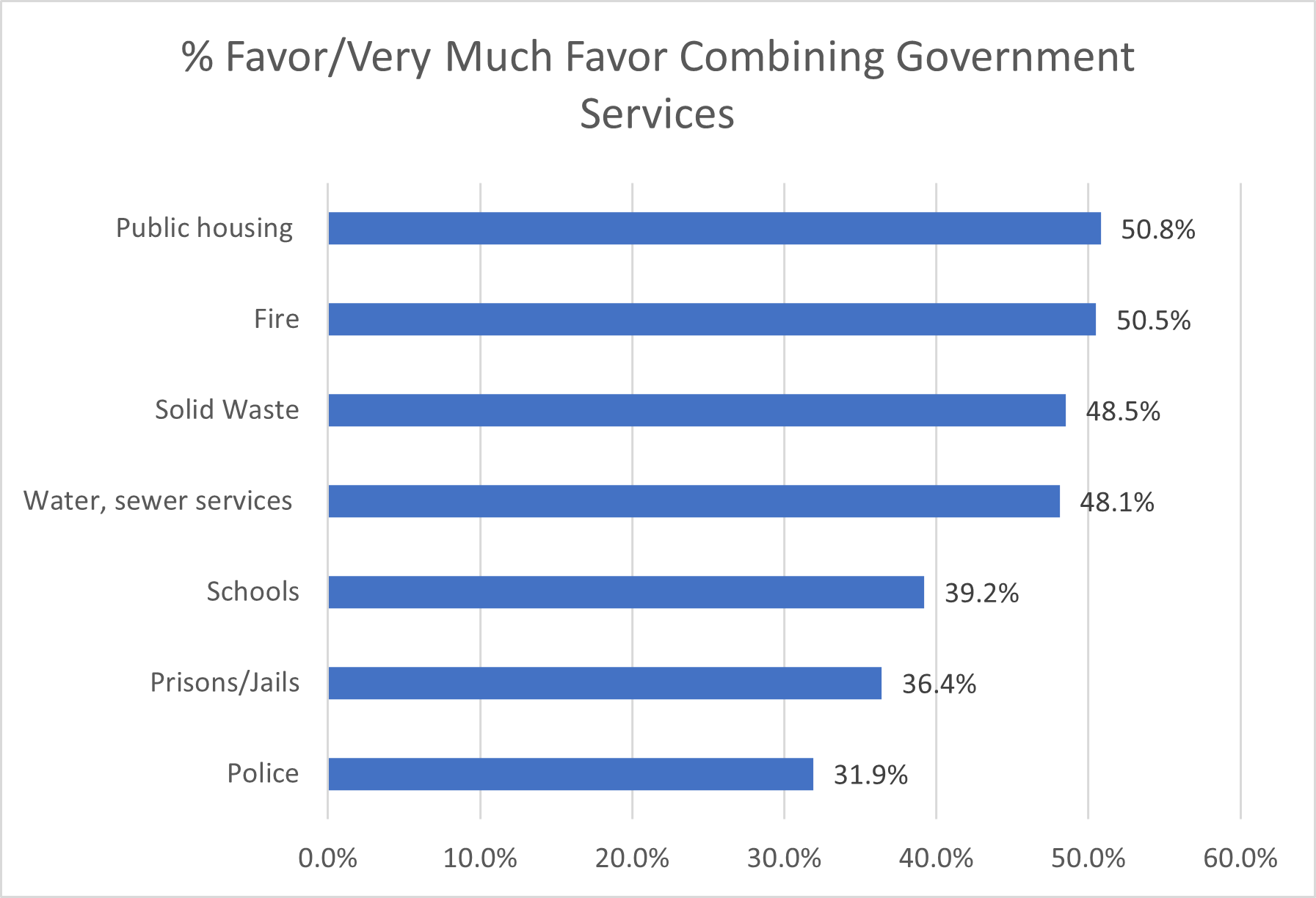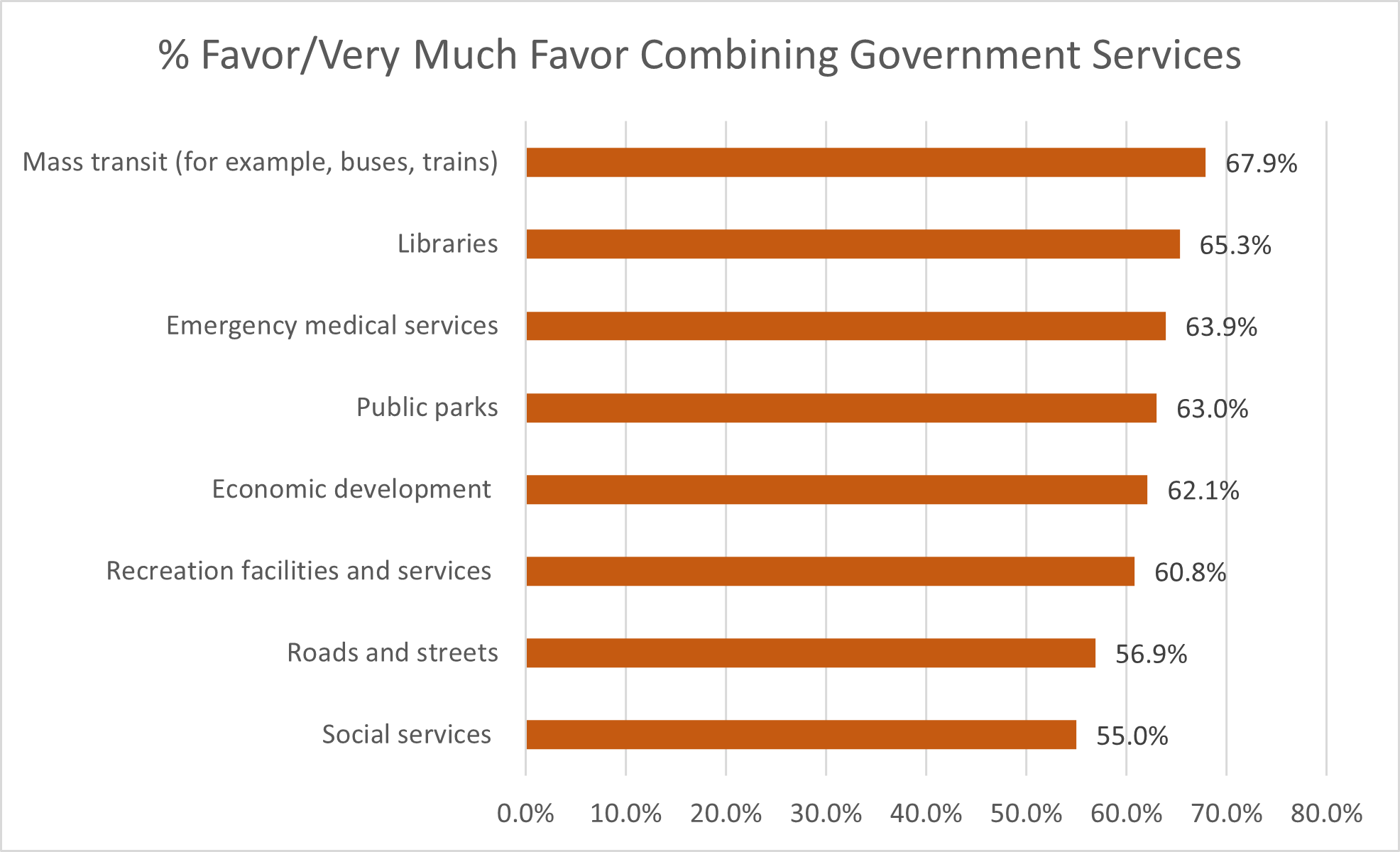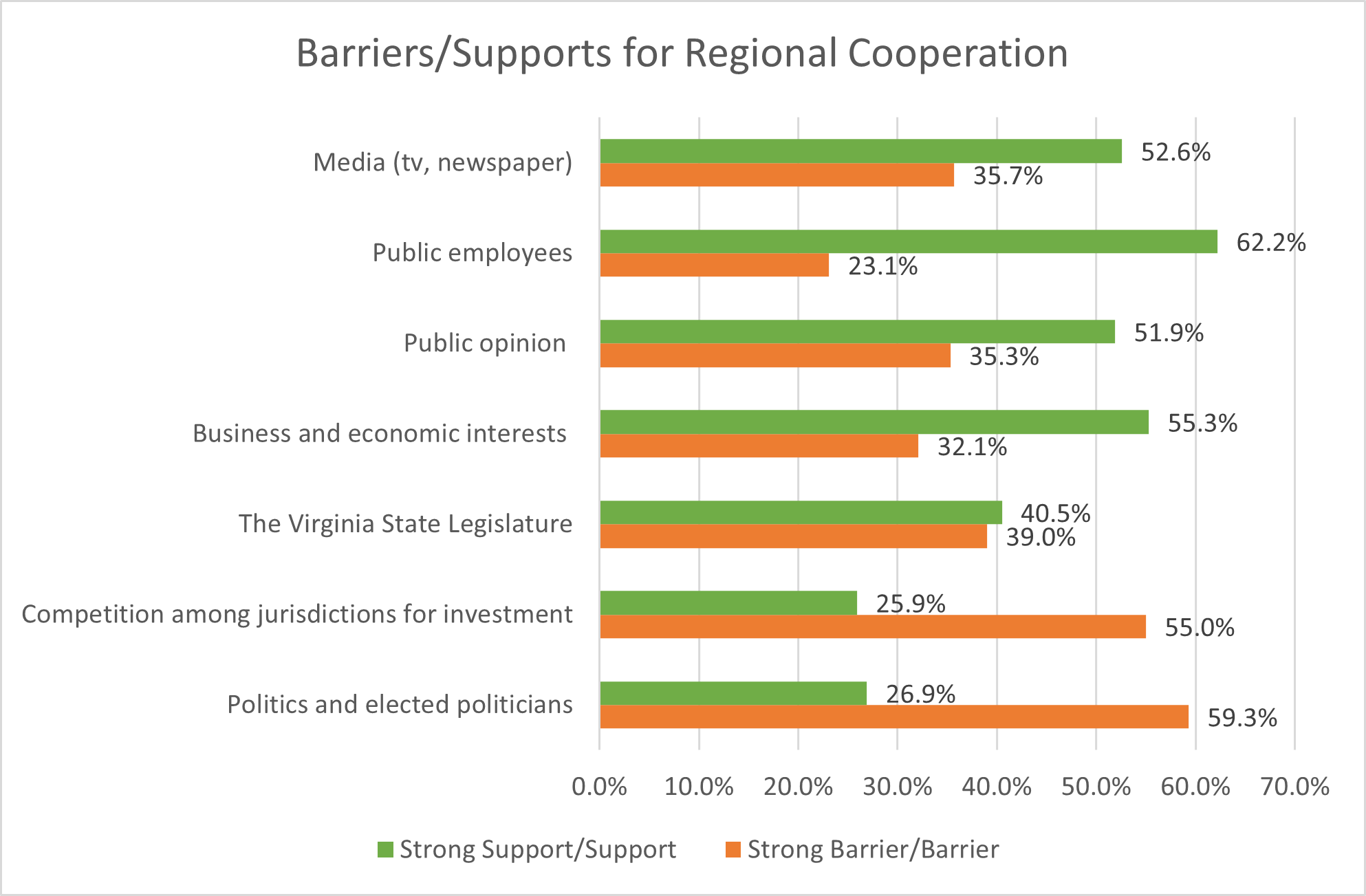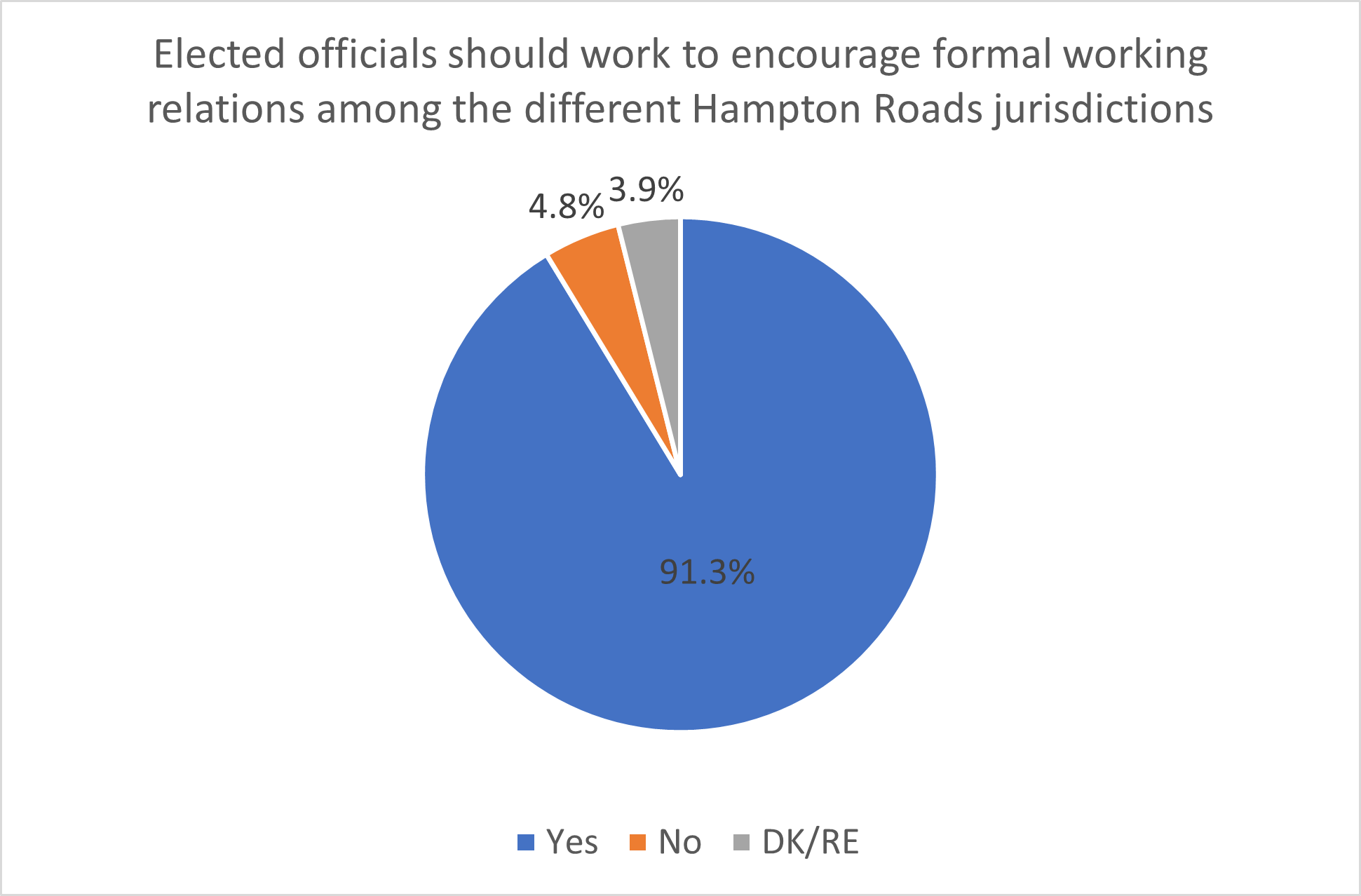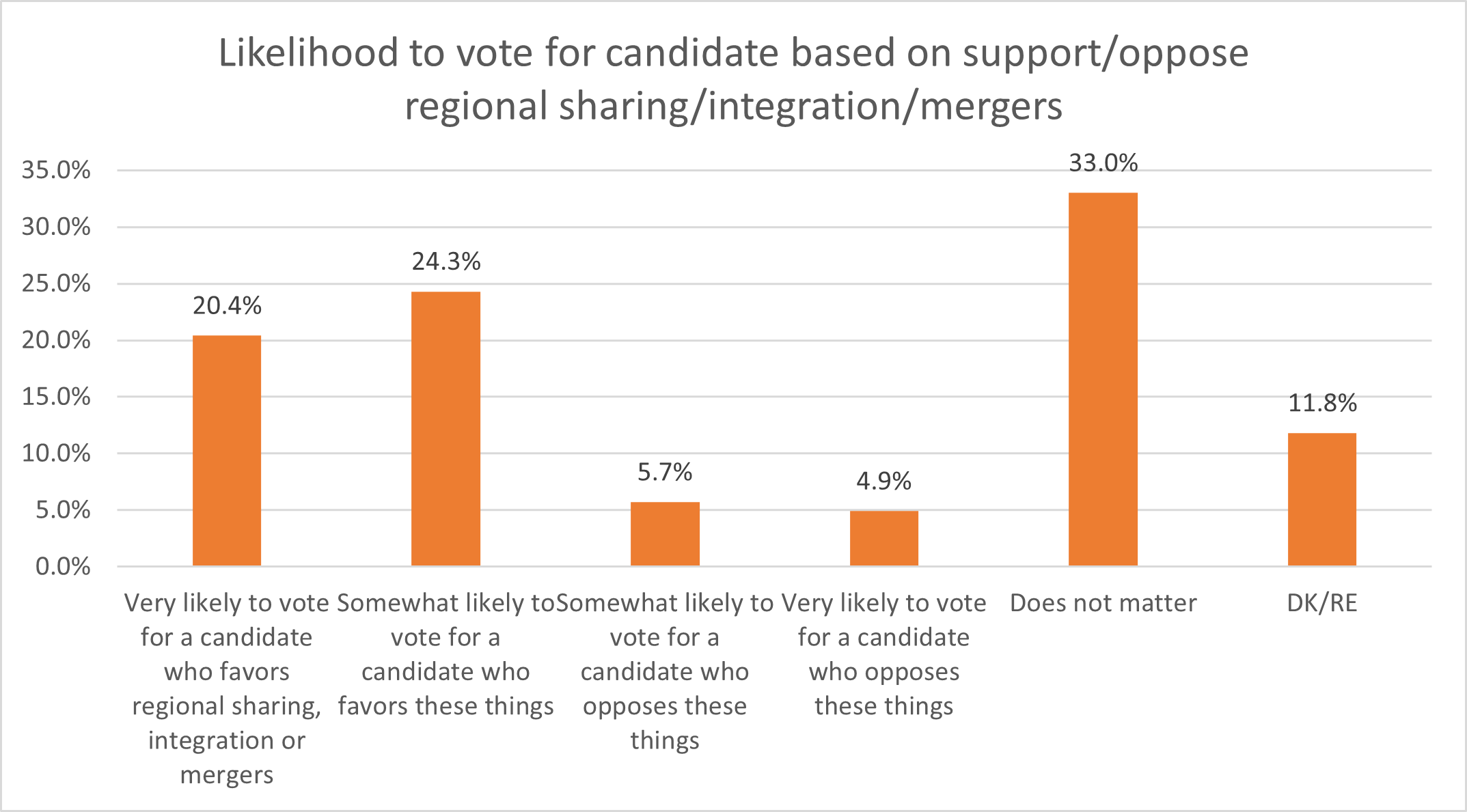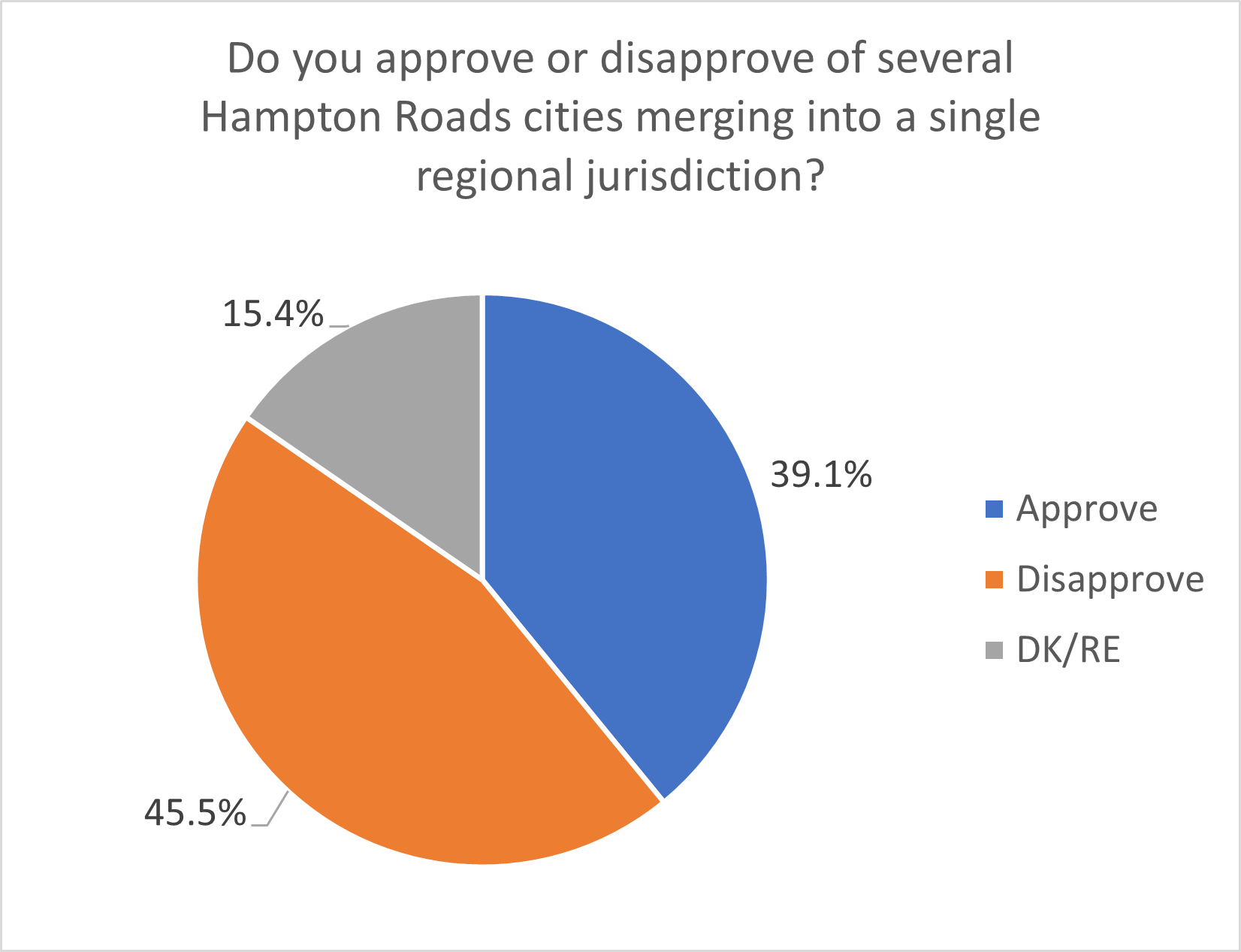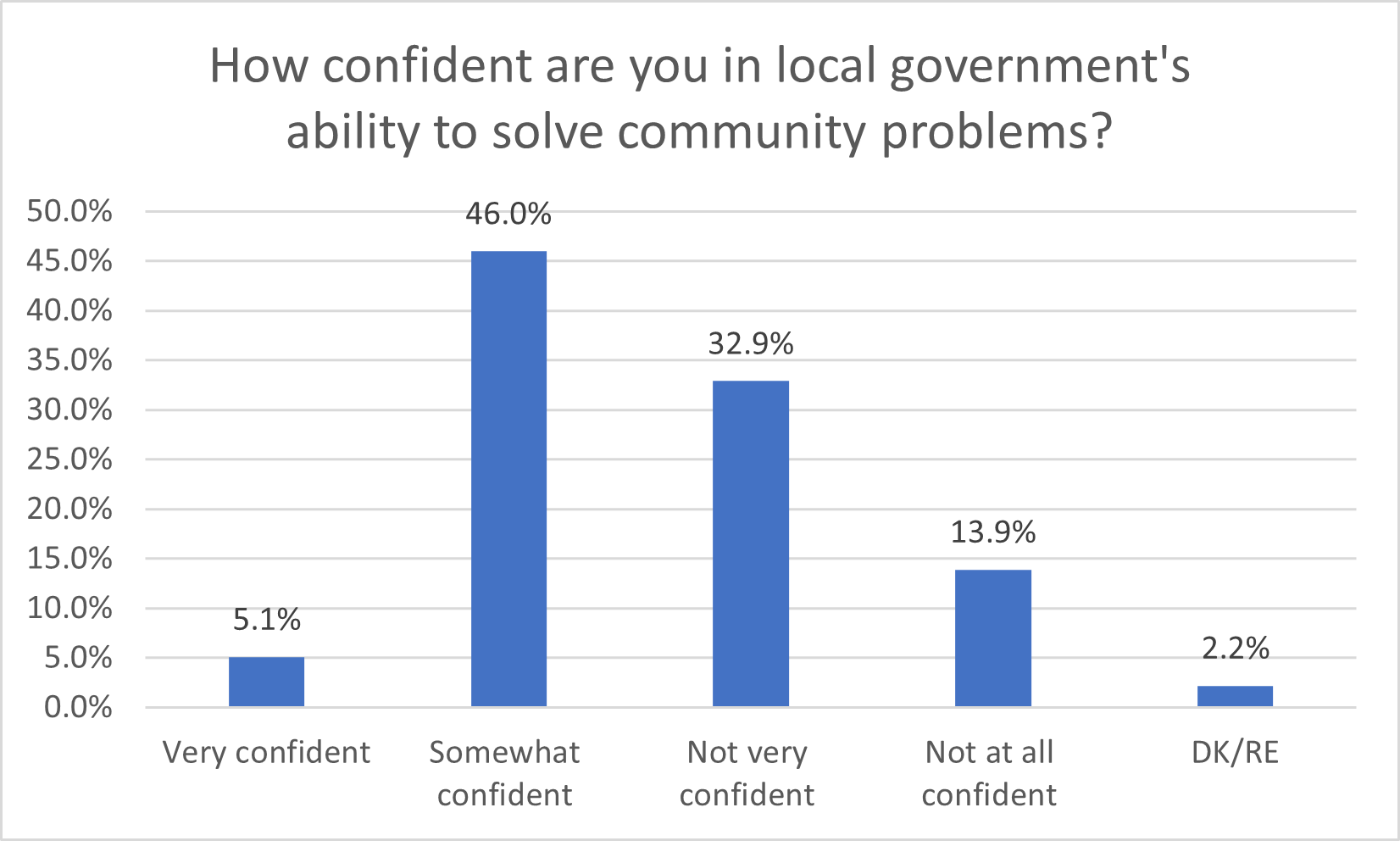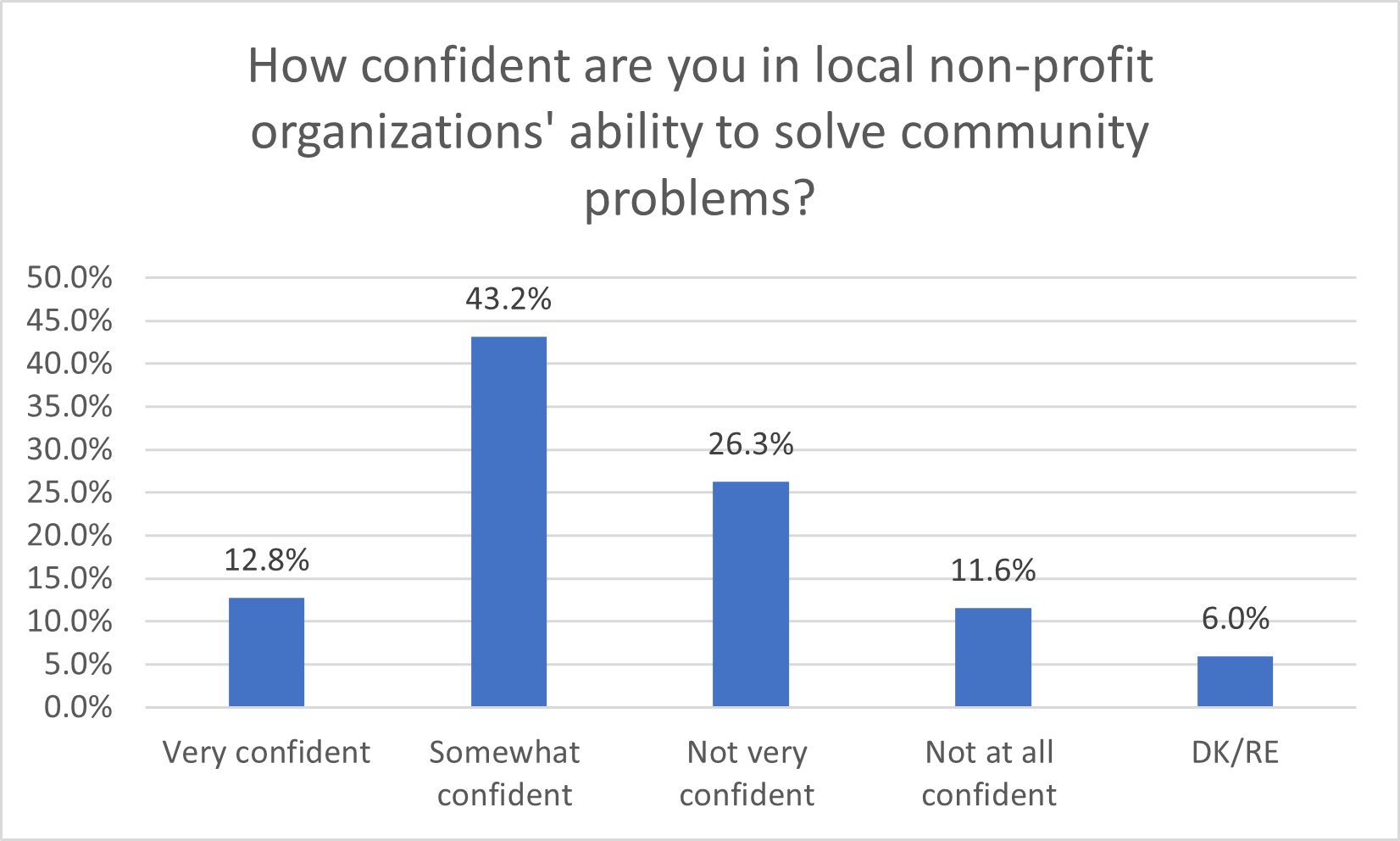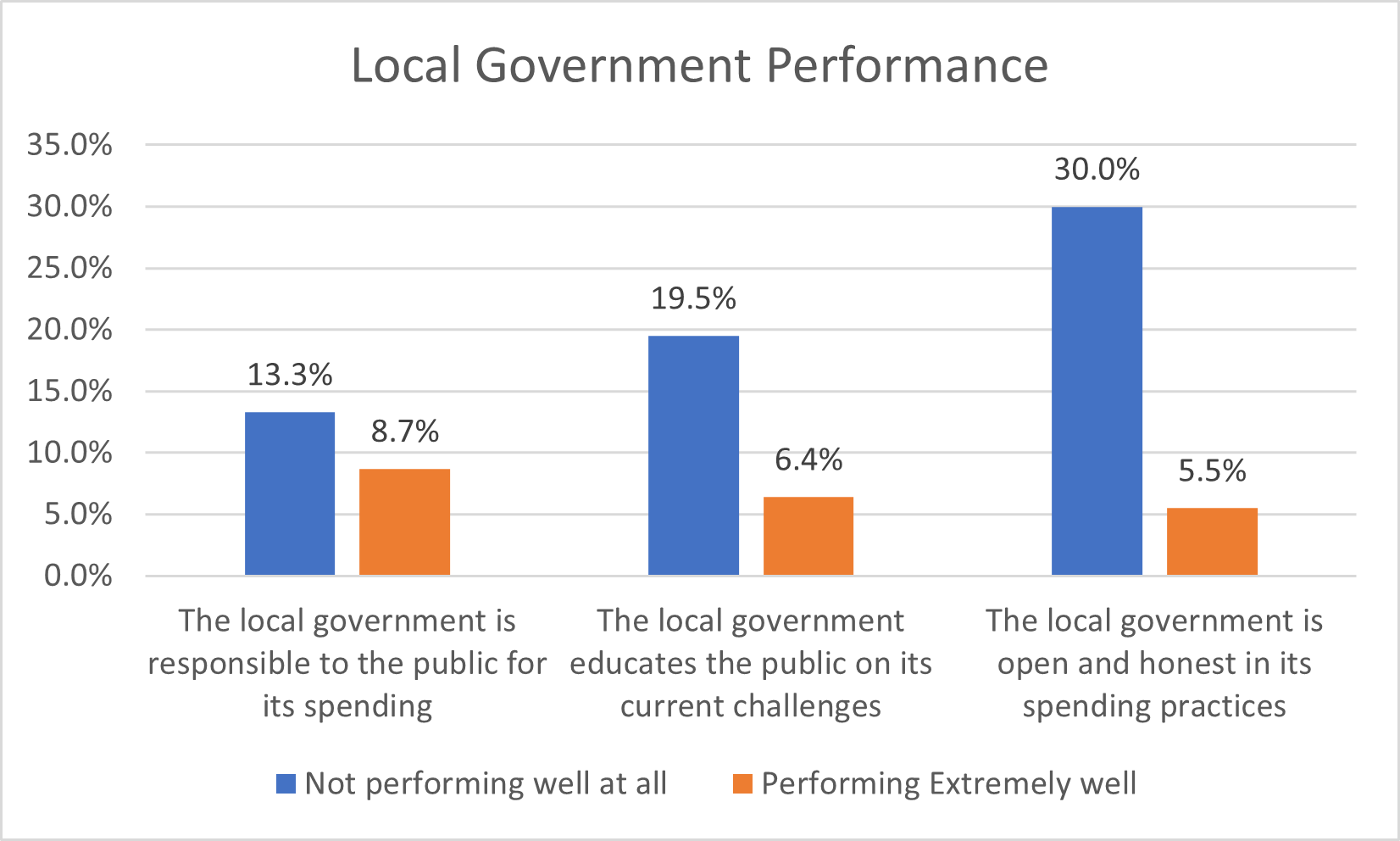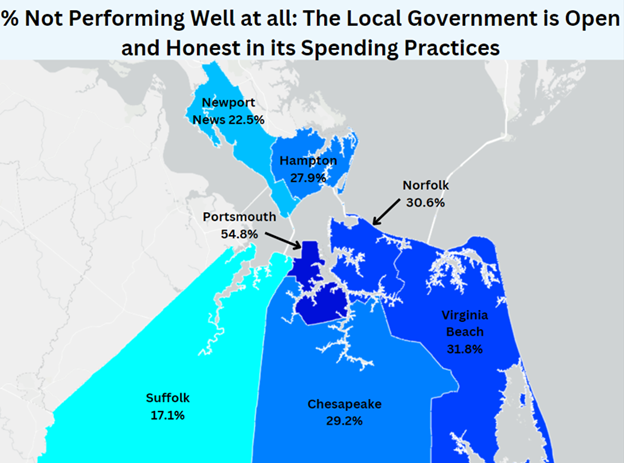Much of this year’s Life in Hampton Roads survey focused on issues of regionalism and regional cooperation and replicated many of the questions from the State of Public Opinion chapter of the 2000 State of the Region report developed by the Regional Studies Institute at ODU (now the Dragas Center for Economic Analysis and Policy). Questions asked respondents about combining government services, barriers to regional cooperation, and support for regional mergers of local jurisdictions.
Respondents were asked to consider the possibility of formally combining government services among the cities, towns and counties in Hampton Roads and to indicate if they favor or oppose combining those services. About half of respondents either favor or very much favor combining public housing (50.8%), fire services (50.5%), solid waste (48.5%) and water/sewer services (48.1%). There was less support for combining schools (39.2%), prisons/jails (36.4%) and police services (31.9%) across multiple jurisdictions.
More than half respondents favor combining other services across jurisdictions including: social services (55%), roads and streets (56.9%), and recreation facilities and services (60.8%). More than 60% of respondents also favor combining economic development (62.1%), public parks (63%) and emergency medical services (63.9%). Combining library services (65.3%) and mass transit (buses/trains – 67.9%) received the most support.
Respondents were asked to consider a list of items that might be barriers or supports for achieving regional cooperation among communities or agencies in Hampton Roads. More than half of respondents felt that media (tv, newspapers) (52.6%), public employees (62.2%), public opinion (51.9%), and business and economic interests (55.3%) are supports/strong supports for regional cooperation. More than half of respondents indicated that competition among jurisdictions for investment (55%) and politics and elected officials (59.3%) were barriers to regional cooperation.
The vast majority of respondents (91.3%) believe that elected officials should work to encourage formal working relations among the different Hampton Roads jurisdictions. However, about one-third of respondents indicated that in a local election it would not matter if a candidate favored or supported regional sharing, integration, or regional mergers. About 45% indicated that they would be likely or very likely to vote for a candidate who favors regional sharing, integration, or mergers. Only 10.6% said that they would likely vote for a candidate who opposes these things.
Respondents were mixed as to their approval of merging several Hampton Road cities into a single regional jurisdiction with only 39.1% indicating that they approve and 45.5% indicating that they disapproved. About 15% were unsure or did not wish to answer.
Respondents were asked how confident they were in the ability of their local government to solve community problems and how confident they were in local non-profit organizations to the do same. Residents expressed slightly higher levels of confidence in non-profit organizations with 56% indicating that they were somewhat or very confident in the ability of local non-profits to solve community problems compared to 51.1% who felt similarly about local government.
Other indicators of local government performance include transparency in spending and educating the public on current challenges. Respondents were asked to rate their local government on a scale of 1 (not performing well at all) to 5 (performing extremely well) to the following items:
- The local government is responsible to the public for its spending.
- The local government educate the public on its current challenges.
- The local government is open and honest in its spending practices.
Focusing on the two ends of the scale, we can see that respondents were more likely to indicate that local government is not performing well at all on these items with 30% indicating “not performing well at all” in terms of open and honest spending practices. Almost one in five also indicated that local government was not performing well at all on educating the public on its current challenges and 13.3% indicating the same for being responsible to the public for it spending. Less than 10% of respondents indicated that the local government was performing extremely well on any of these items.
There are differences in perceptions of performance between cities. The map below shows that more than half of the respondents from Portsmouth (54.8%) feel that local government is not performing well at all in terms of being open and honest in its spending practices. About 30% of respondents from Virginia Beach (31.8%), Norfolk (30.6%) and Chesapeake (29.2%) felt the same. Suffolk had the lowest percentage of “not performing well at all” responses (17.1%)



